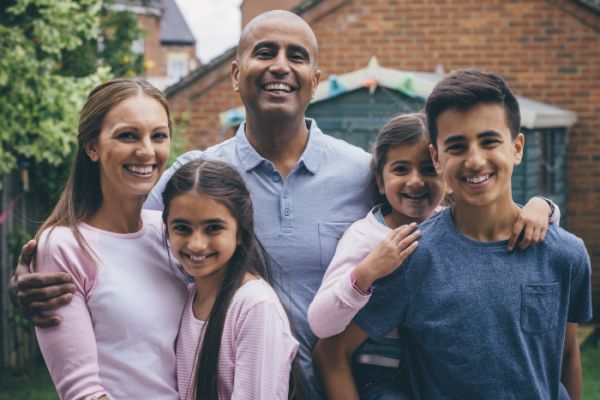As the war in Ukraine escalates, so people’s levels of stress, anxiety, and distress around the conflict will increase, particularly in children.
It can be scary for children reading about the conflict online, or hearing about it in the media or in the playground.
And for parents, grandparents and guardians, it can be difficult to know how to respond to their questions and concerns.
Jo Holmes, our Children, Young People and Families Lead, says the conflict comes after a difficult two years for children and young people, and that there are parallels between the conflict in Ukraine and COVID.
Fear and uncertainty
“Fear and uncertainty, resulting in high levels of anxiety, has very much been at the forefront for the last two years,” says Jo.
“Now added to COVID is the fear of war. It’s around us on every news channel. Conversations are taking place at school, at home, and there’s huge coverage online.
“We’ve gone from experiencing one major life-changing event to hearing about another, with death and loss being a central theme. There’s almost a parallel of something starting far away but creeping closer.”
Some of our members have said that some children are struggling to say words such as “war” and “nuclear deterrent” for fear it would bring it to reality.
Our member Pete English, who works with children and young people, says many students have returned to the classroom from half-term anxious about the war.
Advice
Pete offers advice for parents and guardians to support children.
“Many people have the TV or radio on at home in the background, but be aware children are exposed to news bulletins and images that can disturb them,” he says. “Be aware of the times that inappropriate content may be broadcast.
“When a child expresses their worries and anxieties, listen intently to them and help them to talk about feelings. Maybe have a feelings chart so that they can find the appropriate word if they don’t have the vocabulary yet.
“Don’t just brush it off with comments to make you feel better.
“Have a united front if you’re parenting together. Model that you’re able to express your feelings too but that you have control over them.
“If appropriate explain about the role of the media and how they can create headlines that are designed to catch our attention.
Hold the hope
“And hold the hope. They’re watching you.”
Jo says it’s perfectly normal for children – and for adults – to feel upset by the conflict.
“It’s okay to have those feelings,” she said. “You’re not alone.
“How do we support our children and young people through this?
“By listening. By having those difficult conversations. By hearing about what a child is worried about and asking them how they’re feeling. And by acknowledging our own uncertainties too.”
Jo says that the 24-hour nature of news coverage can feed into anxieties.
She says: “We do need to have the option of turning the news off, of taking a walk, of getting some fresh air and being mindful of our own self-care and that of the children and young people around us.
“Counselling can help with all of this. Having that opportunity to explore and face any fears or worries within a safe and child-focused way.
“We know the earlier we talk about our worries, the better we’re able to process and manage them.”
To find a BACP-registered counsellor or psychotherapist, visit our Therapist Directory.

Ukraine war: Tips on how to look after your mental health during worrying world events
Our members share their thoughts on what to do if you’re anxious about current affairs

Anxiety
What is anxiety? What causes it? What’s the best way to cope with anxiety? BACP accredited therapist Kamalyn Kaur shares her top tips and explains how counselling can help.

Children, young people and families
Promoting the importance of early intervention and access to timely psychological therapies for children, young people and families is a priority for BACP.
